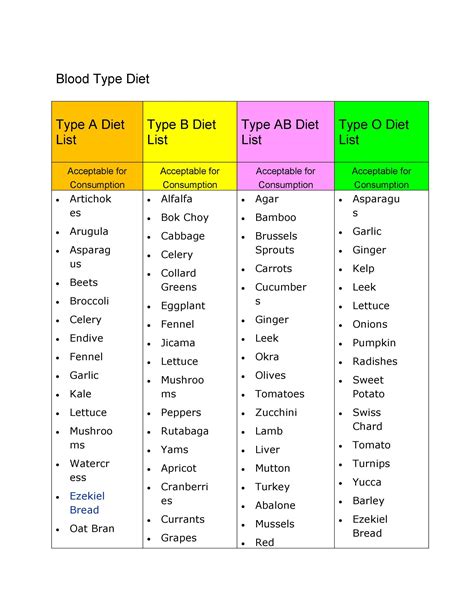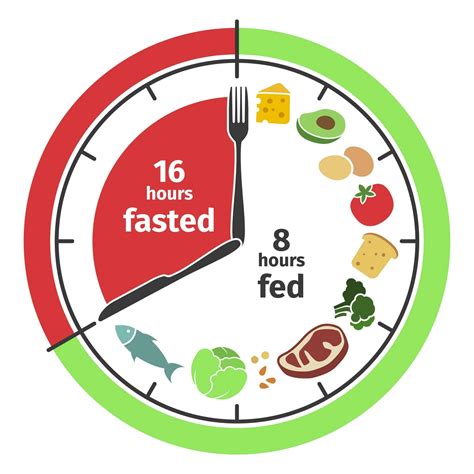Discover the origins, principles, benefits, challenges, and tips for adopting the Word of Wisdom Diet in this comprehensive blog post.
Origins of the Word of Wisdom Diet
Contents
The Word of Wisdom Diet has its origins in the religious and health teachings of The Church of Jesus Christ of Latter-day Saints. The Word of Wisdom is a section of the Doctrine and Covenants, a book of scripture in the LDS Church, which outlines guidelines for maintaining good health. This section of scripture was received by Joseph Smith in 1833 and has since been interpreted by members of the LDS Church as a dietary guide.
According to the Word of Wisdom, followers are encouraged to consume fruits, vegetables, grains, and herbs, and to avoid harmful substances such as alcohol, tobacco, coffee, and tea. This diet is based on the belief that the body is a sacred temple and should be treated with respect and care.
Members of the LDS Church believe that following the Word of Wisdom Diet not only promotes physical health, but also spiritual well-being. They see it as a way to honor God and show gratitude for the blessings of good health.
Over time, the Word of Wisdom Diet has gained popularity outside of the LDS community, with many people adopting its principles as a way to improve their health and well-being. This diet is often praised for its focus on whole, unprocessed foods and its avoidance of harmful substances. It has become a symbol of mindful and intentional eating, emphasizing the connection between diet, spirituality, and overall wellness.
Principles of the Word of Wisdom Diet
Principles of the Word of Wisdom Diet
Principles of the Word of Wisdom Diet
The Word of Wisdom Diet is based on the principles outlined in the Doctrine and Covenants, a book of scripture in The Church of Jesus Christ of Latter-day Saints. This diet emphasizes the consumption of whole, unprocessed foods such as fruits, vegetables, whole grains, and lean proteins, while avoiding or minimizing the intake of refined and processed foods, alcohol, tobacco, and caffeine. The diet is based on the belief that our bodies are sacred and should be treated with care and respect.
One of the key principles of the Word of Wisdom Diet is the concept of moderation. While it encourages the consumption of certain foods, it also promotes the idea of balance and portion control. It encourages individuals to eat in a way that is sustainable and nourishing, without being overly restrictive or depriving oneself of enjoyment.
Another principle of the Word of Wisdom Diet is the focus on overall health and well-being. This includes not only physical health, but also mental and emotional well-being. The diet emphasizes the importance of taking care of one’s body and mind, and making choices that promote long-term health and vitality.
Additionally, the Word of Wisdom Diet promotes the idea of mindful eating. This involves being present and aware during meals, paying attention to hunger and fullness cues, and making conscious food choices. It encourages individuals to be more in tune with their bodies and to develop a healthy relationship with food.
In summary, the principles of the Word of Wisdom Diet are centered around the idea of nourishing the body with whole, unprocessed foods, practicing moderation and balance, prioritizing overall health and well-being, and embracing mindful eating habits.
Benefits of Following the Word of Wisdom Diet
The Word of Wisdom Diet is a dietary plan based on the advice found in the Latter-day Saint scripture known as the Word of Wisdom. This diet emphasizes consuming whole and minimally processed foods such as fruits, vegetables, grains, and legumes while avoiding alcohol, tobacco, and excessive amounts of caffeine and meat. By following the Word of Wisdom Diet, individuals can experience a multitude of benefits for their physical, mental, and spiritual well-being.
One of the key benefits of following the Word of Wisdom Diet is the potential for improved health and longevity. The emphasis on consuming a variety of plant-based foods and limiting the intake of harmful substances can lead to a reduced risk of chronic diseases such as heart disease, diabetes, and certain types of cancer. Additionally, adhering to the principles of this diet can contribute to better overall health and a longer lifespan.
In addition to physical health benefits, the Word of Wisdom Diet can also have a positive impact on mental and emotional well-being. Consuming a diet rich in fruits, vegetables, and whole grains can provide the body with essential nutrients that support brain health and contribute to a balanced mood. Furthermore, avoiding substances such as alcohol and tobacco can help improve mental clarity and reduce the risk of addictive behaviors, leading to greater mental and emotional stability.
Furthermore, following the Word of Wisdom Diet can have spiritual benefits for individuals who adhere to the principles laid out in the Latter-day Saint scripture. For those who are members of the faith, following this diet can be a way to honor and respect their religious beliefs, leading to a sense of peace and harmony in both their dietary choices and their spiritual lives. This spiritual connection can also provide individuals with a sense of purpose and fulfillment in their daily lives.
Overall, the Word of Wisdom Diet offers a wide range of benefits for individuals who choose to follow its principles, including improved physical health, enhanced mental and emotional well-being, and the potential for spiritual growth. By embracing the dietary guidelines outlined in this Latter-day Saint scripture, individuals can experience holistic wellness and a greater sense of balance in their lives.
Potential Challenges of the Word of Wisdom Diet
Potential Challenges of the Word of Wisdom Diet
Following the Word of Wisdom Diet can come with its own set of challenges, especially for those who are used to a different way of eating. One of the potential challenges is the restriction of certain foods and drinks that are commonly consumed in modern diets. For example, the diet advises against consuming alcohol, tobacco, coffee, and black tea, which can be difficult for individuals who are accustomed to including these items in their daily routine. Additionally, the diet encourages the consumption of whole, unprocessed foods, which may require a significant shift in meal planning and preparation for those who are used to relying on processed and convenience foods.
Another potential challenge of the Word of Wisdom Diet is the need for increased mindfulness and self-discipline when it comes to food choices. This may require individuals to be more intentional and aware of what they are eating and drinking, as well as the ingredients and nutritional content of their meals. For those who are used to a more relaxed approach to their eating habits, this level of awareness and discipline may pose a challenge.
In addition, the social aspect of eating and drinking can also present challenges for those following the Word of Wisdom Diet. For example, social gatherings, work events, and dining out can all present situations where individuals may feel pressured to consume foods or drinks that are not aligned with the principles of the diet. This can require individuals to navigate social situations with confidence and assertiveness in order to stick to their dietary choices.
Lastly, depending on an individual’s previous dietary habits and lifestyle, making significant changes to follow the Word of Wisdom Diet may initially result in withdrawal symptoms or cravings for the foods or drinks that are now restricted. This adjustment period can be challenging, but with time and commitment, individuals can overcome these initial obstacles.
Tips for Successfully Adopting the Word of Wisdom Diet
Successfully adopting the Word of Wisdom Diet can be a rewarding journey towards better health and well-being. One important tip for adopting this diet is to start by familiarizing oneself with the principles outlined in the doctrine of the Word of Wisdom. This includes avoiding substances such as alcohol, tobacco, coffee, and tea, and consuming wholesome, plant-based foods in moderation.
Another tip is to gradually make the transition to this diet by incorporating more fruits, vegetables, whole grains, and legumes into your meals. This can help your body adjust to the new dietary changes and prevent any feelings of deprivation.
It’s also important to stay informed and educated about the Word of Wisdom Diet by seeking out reliable resources, such as books, articles, and websites that provide information and recipes tailored to this eating plan. This can help you stay motivated and inspired on your journey.
Additionally, finding a community of like-minded individuals who are also following the Word of Wisdom Diet can provide valuable support and encouragement. Connecting with others who share similar goals and challenges can make the transition to this diet feel less daunting and more enjoyable.
Lastly, it’s essential to listen to your body and make adjustments as needed. Pay attention to how certain foods make you feel and be open to modifying your dietary choices accordingly. Remember that adopting the Word of Wisdom Diet is a personal journey, and it’s okay to tailor it to your own unique needs and preferences.












